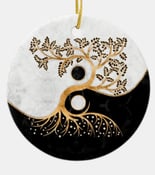Is Mindfulness Spiritual?
Explore the distinction between mindfulness and spirituality. Discover how these two paths can be pursued independently or combined to enrich your journey toward wellbeing and self discovery. Delve into the ways in which mindfulness and spirituality can coexist harmoniously for a more profound and connected life experience.
11/29/2023


In the realm of personal development and wellbeing, mindfulness and spirituality are often intertwined, but it's essential to understand that they are not one and the same. While they can complement each other beautifully, they are distinct and can be practiced separately or jointly to enhance our overall quality of life.
Defining Mindfulness:
Mindfulness is a mental state of being fully present and engaged in the current moment. It is a practice that encourages awareness of your thoughts, feelings, bodily sensations, and the environment you are in. The purpose is to observe and accept these experiences without attachment or aversion. Mindfulness has gained widespread recognition for its capacity to reduce stress, improve focus, and promote emotional well-being.
Exploring Spirituality:
Spirituality, on the other hand, covers a broader area. It involves a connection to something beyond the physical or material aspects of life. For some, this connection is with a higher power or a divine presence. For others, it may involve seeking a deeper understanding of life's purpose, meaning, and interconnectedness. Spirituality often includes personal beliefs, practices, and rituals that align with a particular faith or belief system.
Practicing Mindfulness Separately:
Mindfulness can be practiced independently from any spiritual or religious context. It provides you with practical tools to manage stress, increase self awareness, and enhance emotional regulation. Mindfulness techniques, such as meditation and deep breathing exercises, are secular and accessible to people of all backgrounds and belief systems. Incorporating mindfulness into your daily routine can promote a sense of calm and mental clarity, regardless of your spiritual leanings.
Practicing Spirituality Separately:
Likewise, spirituality can be a deeply personal journey that doesn't require mindfulness practices. Many people find meaning and purpose in their faith, spiritual beliefs, or religious traditions without necessarily engaging in formal mindfulness techniques. Their spiritual practices and rituals, such as prayer, worship, or ethical living, are central to their connection with the divine or the pursuit of a higher truth.
Bringing Them Together:
While mindfulness and spirituality are two distinct things, they can be practiced together to create a more enriching and profound well being journey. Mindfulness can deepen your spiritual connection by helping you become more present and receptive to spiritual experiences. It can enhance your understanding of your spiritual beliefs and align your actions with your values.
For those who do not identify with a specific religion or faith, mixing mindfulness with spirituality can give a feeling of rising above and feeling deeply connected, making people feel more purposeful and linked to the world around them. It offers a means to explore and expand their spiritual journey on their terms.
As you can see, mindfulness and spirituality are not synonymous, but they can coexist harmoniously or be practiced separately. The key is to honor your own beliefs and preferences, choosing the path that resonates most with your personal journey to wellbeing and self discovery. Whether it's through the practice of mindfulness, spirituality, or both, the goal is the same: to find peace, meaning, and connection in the ever unfolding journey of life.
Subscribe to our newsletter
Disclaimer: We are not medical professionals or psychologists. As Mindfulness and Therapeutic Life coaches, we are not providing healthcare, medical, or nutritional therapy services or attempting to diagnose, treat, prevent, or cure any physical, mental, or emotional issue. The information provided on this website is for informational purposes only and is not intended to substitute professional medical advice, diagnoses, or treatment. Always seek advice from your physician or other qualified healthcare provider before undertaking a new health regimen. Do not disregard medical advice or delay seeking medical advice because of information you read on this website. Please see our full disclaimer by clicking here.
This website contains affiliate links. If you click on these links and make a purchase, we may earn a commission at no additional cost to you. We only recommend products and services we believe in and use ourselves. Your support helps us continue providing valuable content. Thank you!


